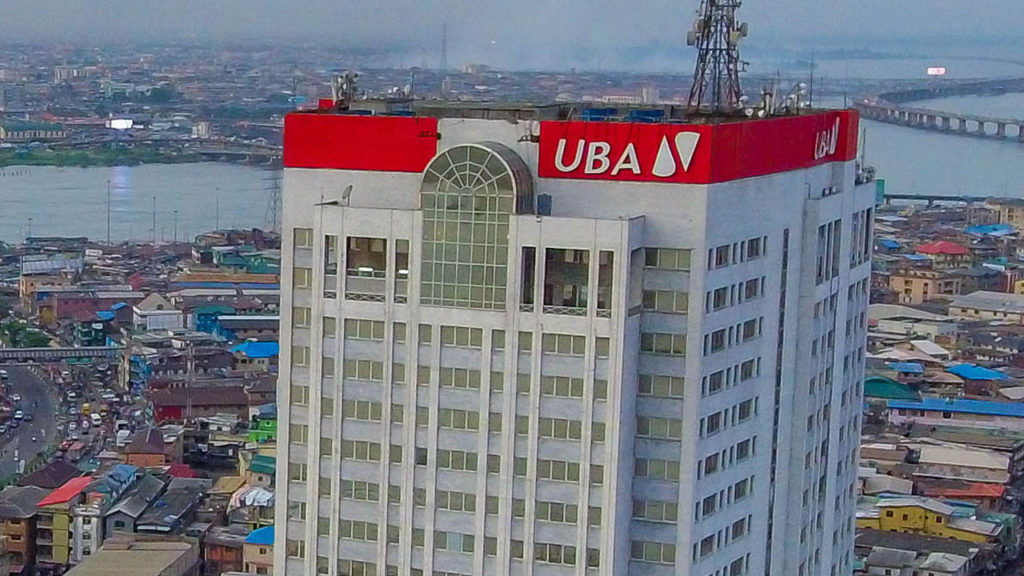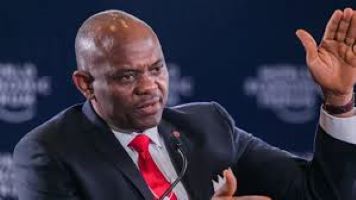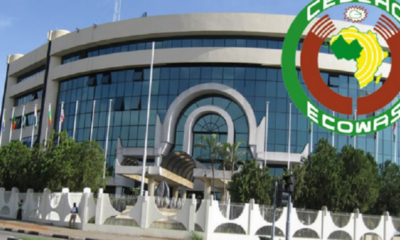News
The Implications of Mali, Burkina Faso, and Niger’s Withdrawal from ECOWAS
Published
3 months agoon

The Implications of Mali, Burkina Faso, and Niger’s Withdrawal from ECOWAS
In a surprising turn of events, Mali, Burkina Faso, and the Niger Republic have decided to withdraw from the Economic Community of West African States (ECOWAS), citing concerns about foreign influence over the regional bloc’s decisions. This move, spearheaded by the current military juntas in power, has sent shock waves across the sub-region and raised questions about the future of regional cooperation and security.
The joint statement issued by the three countries highlighted their dissatisfaction with ECOWAS, accusing the organization of straying from the principles established by its founding fathers nearly 50 years ago. Prior to this withdrawal, ECOWAS consisted of 15 member states with the primary objective of fostering economic cooperation and development in the West African region. Additionally, the organization has played a role in addressing security challenges by establishing a peacekeeping force to manage conflicts within the region.
However, the decision to withdraw from ECOWAS was rooted in the perceived failure of the organization to provide adequate support in combating terrorism and escalating insecurity within the three countries. The joint communiqué, broadcast on national television, emphasized that ECOWAS had become a threat to its founding members by imposing sanctions that were deemed inhumane and in violation of its own rules.
The military takeovers in Mali, Burkina Faso, and Niger were partly triggered by the authorities’ inability to contain the Islamist insurgency plaguing the Sahel region. In response, an extraordinary session of ECOWAS, chaired by Nigeria’s President Bola Tinubu, resulted in the imposition of sanctions, particularly targeting Niger, in light of the military coups. Furthermore, ECOWAS issued an ultimatum to the coup plotters in Niger, demanding the transfer of power to the democratically elected government within a week.
President Tinubu’s strong condemnation of the coups and the subsequent measures taken by ECOWAS, including the closure of borders and suspension of commercial and financial transactions, further exacerbated tensions between the transitional governments of Burkina Faso and Mali and the regional bloc.
The withdrawal of Mali, Burkina Faso, and Niger from ECOWAS raises significant concerns about the future of regional integration, economic cooperation, and security collaboration within West Africa. The implications of this decision are multifaceted and warrant careful consideration.
Firstly, the departure of these countries from ECOWAS threatens to undermine the organization’s ability to effectively address pressing security challenges, particularly the ongoing fight against terrorism and the management of regional conflicts. The withdrawal could potentially weaken the collective response to security threats, leading to a more fragmented and less coordinated approach to regional stability.
Secondly, the economic ramifications of this withdrawal cannot be overlooked. ECOWAS was established with the goal of promoting economic development and raising living standards within member states. The departure of Mali, Burkina Faso, and Niger could disrupt existing trade and economic partnerships, impacting the livelihoods of people across the region and hindering the progress of ongoing economic initiatives.
Furthermore, the withdrawal of these countries raises questions about the broader geopolitical dynamics at play in West Africa. The influence of foreign powers, as alluded to in the joint statement, underscores the complex interplay of international relations and regional governance. The departure from ECOWAS may signal a shift in alliances and partnerships, potentially reshaping the geopolitical landscape of the sub-region.
In light of these developments, it is imperative for all stakeholders, including ECOWAS member states, international partners, and regional organizations, to engage in constructive dialogue and diplomacy to address the concerns raised by Mali, Burkina Faso, and Niger. Efforts should be directed towards finding common ground and reinvigorating the spirit of cooperation and solidarity that underpins regional integration.
It is also essential for ECOWAS to reflect on the grievances expressed by the withdrawing countries and to reassess its approach to addressing security challenges and promoting inclusive decision-making processes. A renewed commitment to upholding the founding principles of ECOWAS and fostering a sense of collective ownership among member states will be crucial in navigating this critical juncture.
Ultimately, the withdrawal of Mali, Burkina Faso, and Niger from ECOWAS serves as a sobering reminder of the complexities inherent in regional governance and the delicate balance between national sovereignty and collective action. The path forward will require thoughtful deliberation, strategic diplomacy, and a shared commitment to advancing the interests of all West African nations.
As the situation continues to unfold, it is essential for all stakeholders to approach this development with a spirit of cooperation, understanding, and a shared vision for a stable, prosperous, and secure West Africa.
The statement by the three countries, translated from French to English, said, “Indeed, the organisation did not provide assistance to our states as part of our existential fight against terrorism and worse, insecurity. When these states decided to take their destiny into their own hands, they adopted an irrational and unacceptable method by imposing illegal, illegitimate, inhumane, and irresponsible sanctions in violation of their own texts.
“All these have further weakened populations already bruised by years of violence imposed by exploited terrorist hordes and remotely controlled.”
Confronted with the harsh situations, the three countries explained that they would no longer remain in the regional bloc.
They said the decision to leave was in tandem with the expectations of the people of Mali, Burkina Faso, and Niger.
According to the joint communiqué, “Faced with this continuing situation, Their Excellencies, Capt. Ibrahim Traoré, Col. Assimi Goïta, and Brig. Gen. Abdourahamane Tiani, respectively, Heads of State of Burkina Faso, the Republic of Mali, and the Republic of Niger, taking all their responsibilities in the face of history and responding to the expectations, concerns, and aspirations of their populations, decide in complete sovereignty on the immediate withdrawal of Burkina Faso, Mali, and Niger from the Economic Community of West African States.”
But in a reaction yesterday, the ECOWAS commission said it had yet to receive any formal letter indicating the withdrawal of the countries’ membership in the sub-regional body.
The ECOWAS Commission stated, “The attention of the Commission of the Economic Community of West African States (ECOWAS Commission) has been drawn to a statement broadcast on the national televisions of Mali and Niger announcing the decision of Burkina Faso, Mali, and Niger to withdraw from ECOWAS.
“The ECOWAS Commission is yet to receive any direct formal notification from the three Member States about their intention to withdraw from the Community.”
The commission said it had been working with the three countries to ensure the return of constitutional order.
The brief statement said, “The ECOWAS Commission, as directed by the Authority of Heads of State and Government, has been working assiduously with these countries for the restoration of constitutional order.
“Burkina Faso, Niger, and Mali remain important members of the community, and the authority remains committed to finding a negotiated solution to the political impasse.
“The ECOWAS Commission remains seized with the development and shall make further pronouncements as the situation evolves.”
In Nigeria, the Peoples Democratic Party (PDP) presidential candidate, Atiku Abubakar, called for tighter security measures to safeguard the country’s borders in the face of the latest developments.
Atiku, in a short message posted on X, described the situation as a “serious diplomatic meltdown,” saying Nigeria must now double its efforts to protect its security interests.
The former vice president stated, “Reports about the withdrawal of three countries from our sub-regional body, @ecowas_cedeao, are concerning. It is a matter of serious diplomatic meltdown.
“We must keep the country’s national security interests, especially the fight against terrorism, banditry, kidnapping, and others, in focus while we appraise the situation.”
In conclusion, the withdrawal of Mali, Burkina Faso, and Niger from ECOWAS represents a pivotal moment in the history of regional cooperation in West Africa. The implications of this decision are far-reaching and necessitate careful consideration and proactive engagement to chart a path forward that upholds the principles of unity, peace, and progress for the entire sub-region.
You may like
-


Acute Hunger Is Expected for 31.5 Million Nigerians by June 2024
-


Strengthening Partnerships: E.U Delegation’s 4-Day Visit to Nigeria
-


ECOMOF 2024: UBA Reaffirms Commitment to Promote African Economic Growth by Offering Strategic Assistance to the Mining and Oil Sectors
-


UBA shines at 2024 ECOWAS Mining Forum in Cotonou, Benin with Elumelu’s Keynote.
-


Niger Republic Reiterates Ban on Flights from Nigeria
-


ECOWAS Provides $1.96 million to Nigeria and Seven other Countries to address Fistula Disorder.



